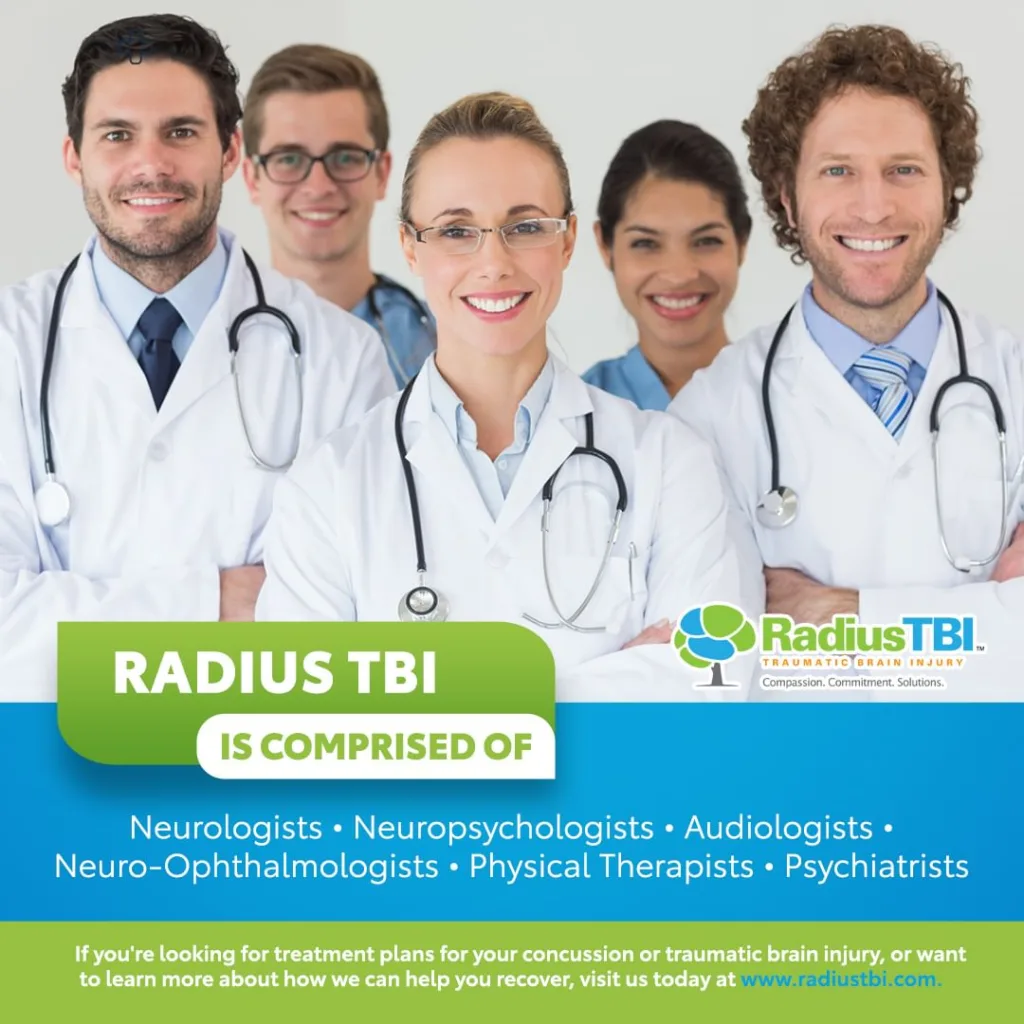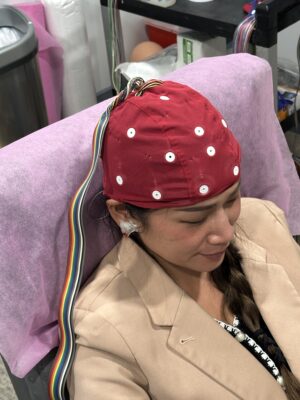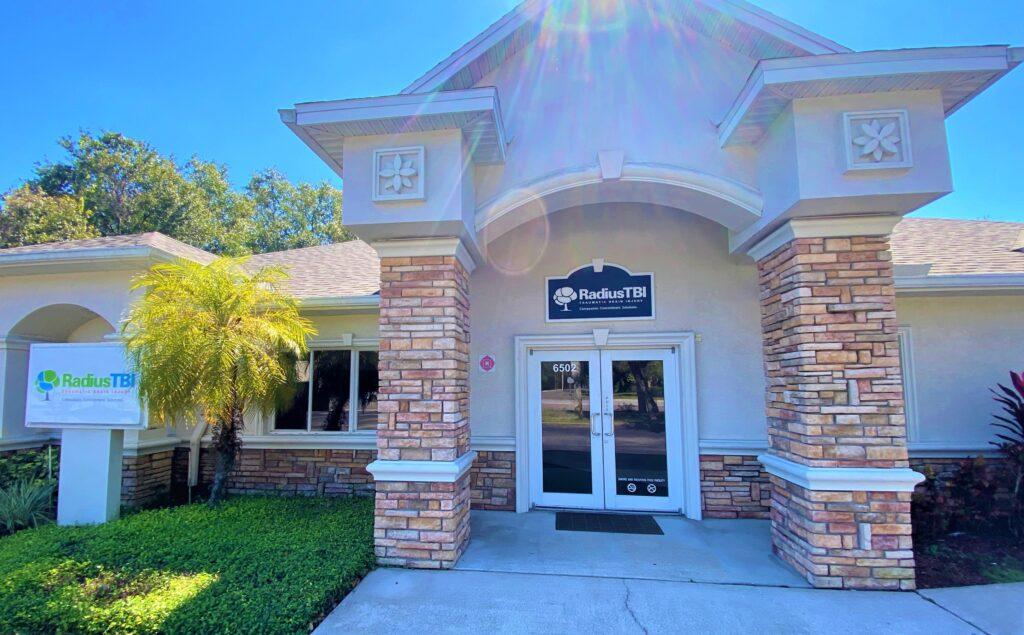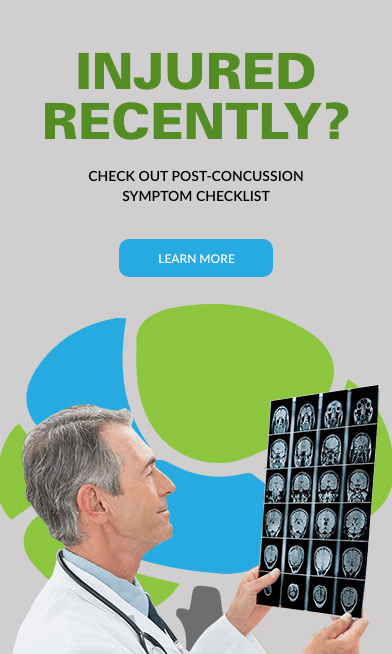Safeguarding Your Brain Health: Identifying Personal Injury Risks and Traumatic Brain Injury at Radius TBI in Ft. Lauderdale, Tampa, and Orlando, Florida
Accidents can strike unexpectedly, leaving individuals with personal injuries that may have long-lasting consequences.
Traumatic Brain Injury (TBI) is a growing concern, especially in the United States. According to the Centers for Disease Control and Prevention (CDC), around 190 people die every day in the US due to a TBI-related injury. Among those who survive, many experience long-term disability and reduced quality of life. Moreover, TBI is a disorder that can affect anyone, irrespective of age, gender, or ethnicity. Therefore it is essential to safeguard your brain health from personal injury risks, and if you or a loved one does sustain TBI, find the right professional healthcare.
Radius TBI: Ft. Lauderdale, Tampa & Orlando, Florida.
At Radius TBI, we understand the importance of early detection and treatment when it comes to brain health. With locations in Ft. Lauderdale, Tampa, and Orlando, Florida, we are dedicated to providing comprehensive care and support for those who may have suffered a traumatic brain injury. In this blog, we will delve into the risks of personal injury leading to TBI and how Radius TBI can help you safeguard your brain health.
Accidents can cause life-altering consequences, including traumatic brain injury (TBI)
While some injuries can be readily apparent, there are hidden dangers that can manifest in the form of traumatic brain injury (TBI). A blow to the head during an accident can lead to physical, emotional, and cognitive changes that require immediate attention and care.
Understanding the Risks of Personal Injury and Traumatic Brain Injury.
Accidents come in various forms, including motor vehicle collisions, slip and fall incidents, sports-related mishaps, and workplace accidents. While some personal injuries may be evident, the hidden danger lies in traumatic brain injury, which may not always be immediately noticeable. However, the most common personal injury that results in TBI is a blow or bump to the head. A fall can be the leading cause of TBI among all age groups. Acording to article from National Library of Medicine: For young adults, sports-related injuries account for almost 41.1% of all TBIs. Workers in certain industries, especially construction, also at high risk.
Identifying the Signs and Symptoms.
TBI can result in various physical, sensory, cognitive, and emotional symptoms. Physical symptoms include headaches, dizziness, and loss of balance. Sensory symptoms include blurred vision, ringing in the ears, and difficulty in hearing. Cognitive symptoms include difficulty in concentrating, memory problems, and issues with decision-making. Emotional symptoms include mood swings, irritability, and depression.
Finding the Right TBI Healthcare Centre
If you or a loved one has had a personal injury that resulted in TBI, the right healthcare center can provide the necessary support, and reduce the impact of the injury on the person's overall life. Radius TBI is a professional healthcare facility specializing in treating TBI. We provide multidisciplinary care that involves a team of healthcare providers, including neurologists, neuro-ophthalmologist, psychologists, and physical therapists.
Expert Assessment and Diagnosis at Radius TBI
At Radius TBI, our experienced medical team specializes in the assessment and diagnosis of traumatic brain injuries. We understand that every case is unique, and with our state-of-the-art facilities and advanced diagnostic tools, we conduct thorough evaluations to understand the extent of brain injury and its impact on physical and cognitive function.
The Treatment Process at Radius TBI
Radius TBI provides a comprehensive and individualized treatment plan for each TBI patient. Our treatment plan may include a range of therapies such as cognitive rehabilitation, physical therapy, psychiatric review, and speech pathology. The healthcare providers work together to address the different symptoms and needs of the patient. The primary goal is to reduce the impact of the injury and assist the patient in regaining independence and quality of life.
The Importance of TBI Follow-Up Care
Follow-up care is crucial for the successful treatment of TBI. Aftercare is essential for monitoring the patient's progress, identifying any new symptoms, and adjusting the treatment plan as needed. The team at Radius TBI has an extensive follow-up care process that involves regular appointments and communication with the patient and the patient's family members.
Call to Schedule Your Memory and Brain Health Check
Your brain health is of paramount importance, and early detection of traumatic brain injuries can lead to better outcomes. If you or someone you know has been involved in an accident and is experiencing symptoms that could indicate a TBI, don't hesitate to contact Radius TBI.

Personal injuries can occur anytime, anywhere, and it is essential to take the necessary steps to safeguard the brain's health. TBI can significantly affect a person's life, and appropriate healthcare is necessary to reduce its impact. Radius TBI is a healthcare center specializing in TBI treatment, and they are dedicated to providing comprehensive, individualized care to their patients. By understanding personal injury risks and identifying the signs and symptoms of TBI, you can take steps to take care of yourself and your loved ones better.
Set a schedule to check your memory and brain health at our Ft. Lauderdale, Tampa, or Orlando, Florida locations. Our expert team is here to provide compassionate care and support on your journey to recovery and well-being.
Blogs

QEEG Brain Map Interpretation
In the world of neuroscience, one of the advanced tools used to understand brain function is the Quantitative Electroencephalogram (QEEG), often referred to as brain mapping. But who interprets these intricate brain maps, and why

Meet Our No.1 Best Neuropsychologist in Tampa, FL Location
At Radius TBI, we pride ourselves on providing exceptional care for individuals suffering from traumatic brain injuries (TBI) and concussions. Our integrated medical team in Tampa, FL, includes some of the most respected and experienced

Sleep Disturbance
Did you know? Dealing with a traumatic brain injury (TBI) often means navigating a range of complications, one of the most prevalent being sleep disturbances. Surprisingly, 30-70% of individuals with a TBI experience some form





